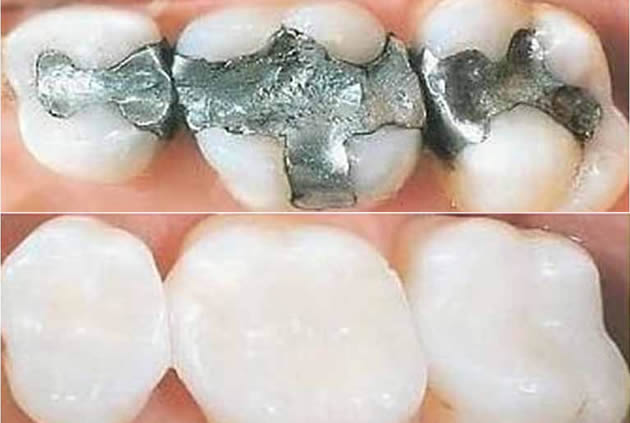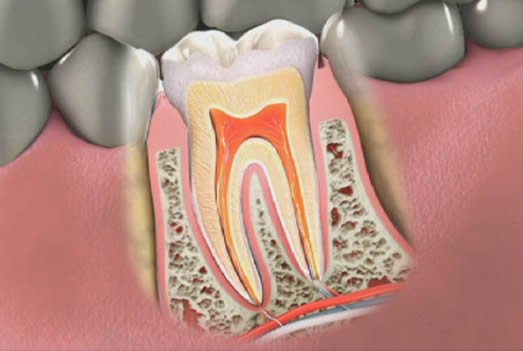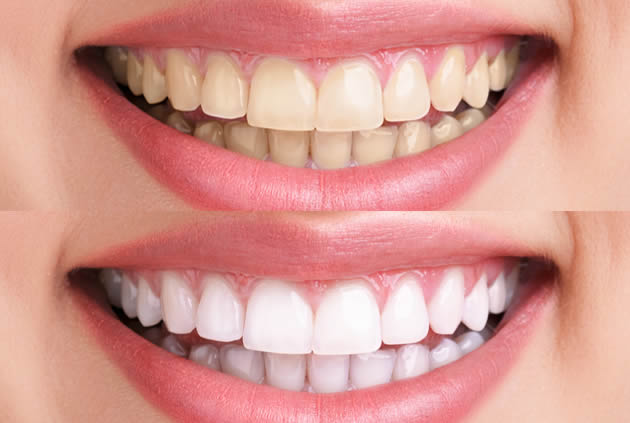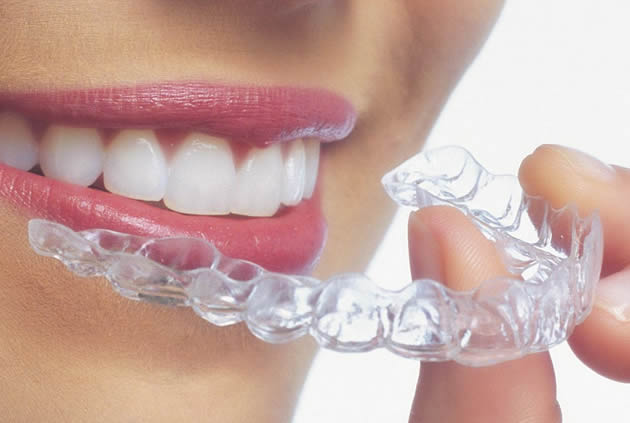
You may know all about basic dental care. Most people can tell you about the importance of brushing twice a day and flossing regularly. If you asked friends and family, they could probably list the virtues of eating whole grains, lean meats, and green vegetables to keep teeth and gums healthy. The majority of individuals, though, probably don’t know these fun facts:
- Approximately 33 percent of people squeeze their toothpaste from the middle.
- As early as 700 BC, people carved false teeth out of animal bones.
- During ancient times, the barber cut your hair, gave you a shave, and extracted injured teeth.
- Each year, Americans fork out more money on hair care and lottery tickets than they do on their dental health.
- In 1994, a West Virginia inmate scaled a wall and escaped prison using a rope made from dental floss.
- Modern toothpaste was first manufacture by the Colgate Company.
- People brushed their teeth with twigs or their fingers before toothbrushes were invented.
- Poor individuals sold their teeth to the wealthy during the 18th century and these people used them as replacement teeth.
- Surprisingly, cows don’t have upper teeth.
- The Mexican version of the Tooth Fairy, called the Tooth Mouse, takes the lost tooth and leaves behind a small gift.
- To win the 1986 National Spelling Bee, the top contestant correctly spelled odontalgia, another word for toothache.
- When asked, 73 percent of Americans said they would rather grocery shop than floss their teeth.
We treat patients from Baltimore and the surrounding area
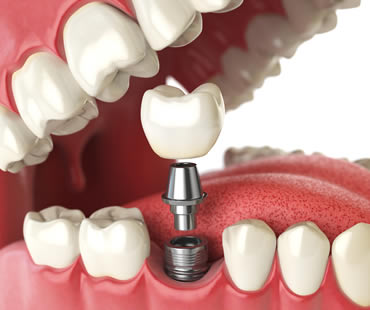
Missing teeth can put a damper on your active lifestyle. You may feel self-conscious about your appearance, experience limitations in diet, or have difficulty speaking. Without a full set of teeth, you risk gum degeneration, bone loss, and other oral health problems. Designed to mimic the look and feel of natural teeth, dental implants can rejuvenate your smile.
What is a dental implant?
A small titanium post that serves as an artificial tooth root, a dental implant is surgically positioned into your gums. Your dentist will place a permanent crown on each implant, which completes the replacement tooth. Implants can be used for one or more missing teeth.
Am I a candidate for dental implants?
In general, anyone with a missing tooth should consider dental implants. The key to successful implant placement is good oral health and sufficient bone structure to support the posts. If you don’t have adequate bone levels, your dentist may recommend a bone graft to correct that situation.
How long does the procedure take?
Receiving dental implants is a two-step process. During the first visit, a trained specialist will surgically implant the posts into your jawbone. Then, you will need to wait three to six months for healing and integration with the jawbone. Once this occurs, your dentist will place the permanent crowns on the implants, giving you a full smile.
How do I care for my implants?
Just like your natural teeth, your implants require daily care. Brush often and floss frequently. Regular dental checkups are also important, so schedule visits at least twice a year.
We look forward to seeing you in our Baltimore dental office

Sometimes people lose teeth. It may result from tooth decay, trauma, disease, or other problems but no matter the cause, the end result can be poor mouth function and an embarrassing appearance. Luckily, dental implants provide an effective way to repair your smile and change your whole outlook on life.
Dental implants are basically replacement roots for your missing teeth. When you lose a tooth, you also lose the roots that hold it in place. Implants provide a substitute for the roots in order to anchor an artificial tooth securely in place. It requires oral surgery to get dental implants, because a small titanium post is placed directly into the bone where the missing tooth’s roots should be. As healing occurs over the next few months, the implanted post becomes part of your jaw and creates a very secure artificial root.
Once the implant has successfully attached to your jawbone, a small post is placed to hold your new tooth. A crown that matches your existing teeth is attached to the post, and your dental implant is complete. Some of the benefits you can expect from dental implants include:
- Permanent restoration
- Improved appearance
- Normal speech
- Comfort
- Easier eating
- Improved self-confidence
- Convenience
Before deciding to have a dental implant, make sure you see a qualified dentist or oral surgeon to make sure you are a good candidate. It is important to have enough bone to support the implant. If not, you may need some type of intervention to correct bone deficiency or you might be advised about a different type of restoration. But if you learn that implants are an option in your situation, you will be able to begin your journey to a beautiful smile.
We offer dental Implants for missing teeth at our Baltimore dental office

For many years, your only choice for replacing missing teeth was dentures or bridges. Now dental implants offer an impressive alternative. Don’t rule them out just because you don’t know what they are, what the process is, who makes a good candidate, or what the benefits include. Learn more about implants so you can make an educated decision whether they’re right for you.
Teeth can be lost or severely damaged for many reasons such as gum disease, tooth decay, or injury. Dental implants provide a solution by surgically placing a titanium root directly into your jawbone. A post connects the implant to an artificial tooth that is placed on top during a second surgery. Usually there is a delay between the first and second surgeries to allow for proper healing so that the implant is successful.
Implants offer lots of benefits. They look and feel like your real teeth, and there’s no slipping or speech problems as with other restorations. They have a very high success rate and can last a lifetime with good care. Your oral hygiene tasks are the same as with real teeth. Your self-esteem will increase with your fully restored and functional smile.
Although many people are good candidates for implants, your dentist will let you know if there are risks for you. Healthy gums are very important, so those with periodontal disease may not be suitable. There also must be sufficient jaw bone support for implants to attach successfully, or you might be able to have bone grafting done to achieve more jaw strength before implants.
Dental implants are often the ideal solution for people who are missing teeth. Even though you might be nervous about the procedure, implants provide a great way to restore your smile comfortably and naturally.
Dental Implants Baltimore

It’s more common that you might think for adults to lose one or more teeth due to injury or oral diseases. Missing teeth can make chewing and speaking difficult, not to mention lowering a person’s self esteem. That’s why it’s smart to ask your dentist about tooth replacement options, to see if one of them might be right for you.
Dental implants
When artificial tooth roots are inserted into your jaw to replace lost teeth, it’s called dental implants. It involves surgically placing a metal post into the bone under your gums. Then a crown is attached to the post, creating a natural-looking replacement tooth. Dental implants do not affect adjacent teeth, and they look and feel like natural teeth. They are also more secure than other tooth replacement options. However, to be considered for dental implants, you must be healthy overall, have a secure and strong jawbone, and have healthy gums.
Dental bridges
Also called a fixed partial denture, the purpose of a dental bridge is to “bridge” or close the gap between your missing tooth or teeth and your surrounding teeth. Your dentist bonds the bridge onto the teeth adjacent to your gap. This is called a fixed bridge. There are also removable bridges, which you are able to remove, clean, and replace yourself. Another type of dental bridge is called an implant bridge, which attaches to a dental implant. The various types of dental bridge are made from materials like gold, alloys, and porcelain.
Dentures
When you need a tooth replacement option for all or most of your teeth, dentures may be the best choice. Complete dentures are used when you have no teeth left, or the remaining teeth must be removed. These cover both your upper and lower gums. Overdentures are removable and may be used if you have some natural teeth remaining, or have dental implants. These are only an option if your remaining teeth or implants can provide enough support for the overdentures.
If you need a dentist in Baltimore contact us today

Restoring missing teeth with dental implants is the latest and greatest technique to give you your smile back. It offers many benefits such as comfort, aesthetics, security, and easy maintenance. If you are missing any teeth and would like to learn more about getting dental implants, you need to find a qualified and experienced dental professional for the job. Here are some tips on doing so.
Training
Dentists or oral surgeons who perform dental implants should have training specifically in the procedure. Look for a professional with credentials like a dentistry degree from a reputable university, participation in continuing education programs, and membership in dental organizations.
Reviews
Look online for reviews of the dentist and practice, and be sure to ask friends and family for recommendations. Word of mouth is often the best way to find a healthcare professional.
Examples of work
Ask to see before-and-after pictures of dental implants performed by the dentist. Request to see cases similar to yours.
Technology
A quality dental office should have the latest advancements in technology and equipment so that you will receive the most up-to-date care. Look for equipment like digital X-rays, chair side screens, and dental lasers. Also inquire about sedation or anesthesia methods available in the office.
Convenience
The location of the office should factor into your decision as you choose a professional to perform your dental implant procedure, as well as the office hours and staff. You should feel confident in the care you’ll receive, and feel comfortable asking questions and receiving treatment. Implant treatment requires multiple visits, so choose a dentist who you don’t mind establishing a relationship with over time.
We treat patients from Baltimore and the surrounding area













